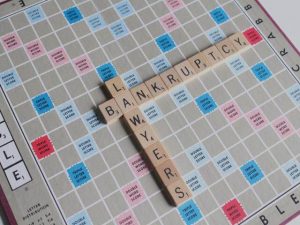Content Reviewed by: Dave Gormley •
April.25.2020 Vertified Content
Apr 25, 2020 | Read Time: 4 minutes
One of the first questions people ask about bankruptcy is “What do I get to keep?” To figure out the answer to this question you need to have and understanding of bankruptcy exemptions. Bankruptcy exemptions set out what assets you are allowed to protect or keep when you file a bankruptcy.
If you have lived in Maryland for the last two years you will use Maryland’s bankruptcy exemptions. If you haven’t lived in Maryland for two years you may have to use another State’s exemptions or the Federal exemptions. Some States, like Maryland, have set out their own set of exemptions, listing what you get to protect. Some States use the Federal Exemption rules. And some States let you choose between their set of exemptions and the Federal Exemptions.
A State’s exemptions can tell you a little about that State. Texas has an exemption for a saddle. Florida has an exemption to protect a hurricane saving account. In Maine you can exempt 10 cords of wood. Maryland’s exemptions aren’t that interesting. Maryland’s exemptions are just about the money.
The basic Maryland exemptions let you protect $12,000 in assets. Now this is grossly oversimplifying it. There are categories and specific definitions. There are also other exemptions that let you protect your pension, some equity in your home and certain other assets. But these basic exemptions are those ones I find I use in almost ever case. $12,000 may not sound like much, but it can go a long way.
First, we are looking at what something is worth now, not what you paid for it. Ask yourself what would you could sell it for as a willing seller to a willing buyer. For a car this could be the bluebook private party value. For a couch, this could be what you would pay for it at a thrift shop. Secondly, we only are concerned with protecting equity. So if you owe money on a car we can subtract out what owe. And if it is a joint case, each person who is filing gets their own set of most exemptions to protect the assets in their name.
Common Maryland Bankruptcy Exemptions
- Household Goods & Furnishings $1,000
- Real Or Personal Property $5,000
- Property of Any Kind $6,000
- Qualified Pensions Unlimited
- Homestead Exemption $27,900 (does not double in a joint case)
- Tools Of The Trade $5,000
How Do Exemptions Work?
In a Chapter 7 you use exemptions to protect your assets. If your assets fit within the exemptions you get to keep them. If you have an asset that isn’t fully protected that asset may be sold. You get the amount you exempted but the rest of the money would be sprinkled among the creditors. You get to choose what to exempt. If you have an asset that you can’t exempt but you don’t want to give up you might choose to file a Chapter 13 to protect it.
For information on keeping your house or car see our post:
In a Chapter 13 exemptions help determine how much of your debt you have to pay back in the plan. If you have assets that wouldn’t be protected in a Chapter 7, you have to make sure the payment plan pays the unsecured creditors as least the amount of money they would have gotten in the Chapter 7. This is called the Chapter 7 liquidation test.
While this all can get pretty complicated, the important thing is to know you have options. In most circumstances you can find a way to protect the assets that are important to you. When you come in for a free bankruptcy consult we can figure out the best option for you.
Conclusion & Next Steps
If you, or someone you know, has this problem you may do them a big favor telling them now is the time to see a bankruptcy lawyer for a consultation. While they may not be able to discharge their tax debt in bankruptcy, they may be able to deal with the debts that are causing their tax problems.
Remember, consultations are free and confidential, so there is nothing to lose.
Want to know more? Discover what you need to know about bankruptcy in Maryland. Click here to see our Free Legal Consumer Guide to Maryland bankruptcy cases and get answers to your questions today. Know your options. Be informed. Protect yourself.
Need a bankruptcy lawyer? Please contact us for a consultation today if you need a Maryland bankruptcy lawyer for your bankruptcy case.
Like our blog? Subscribe to our email newsletter and stay informed!





